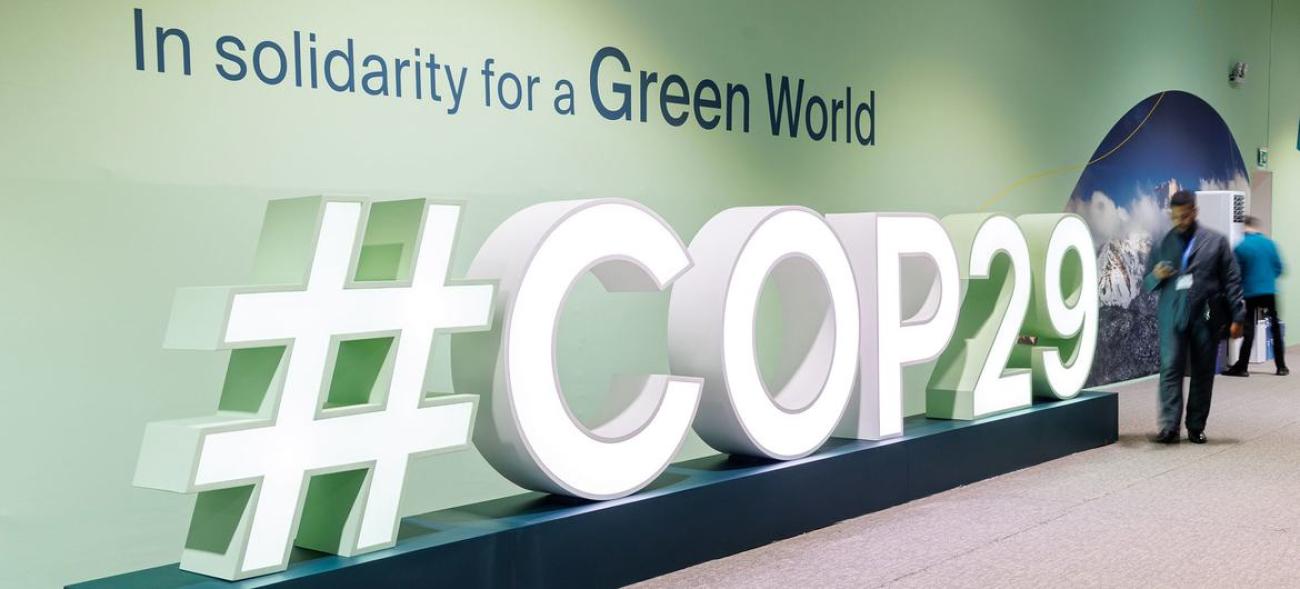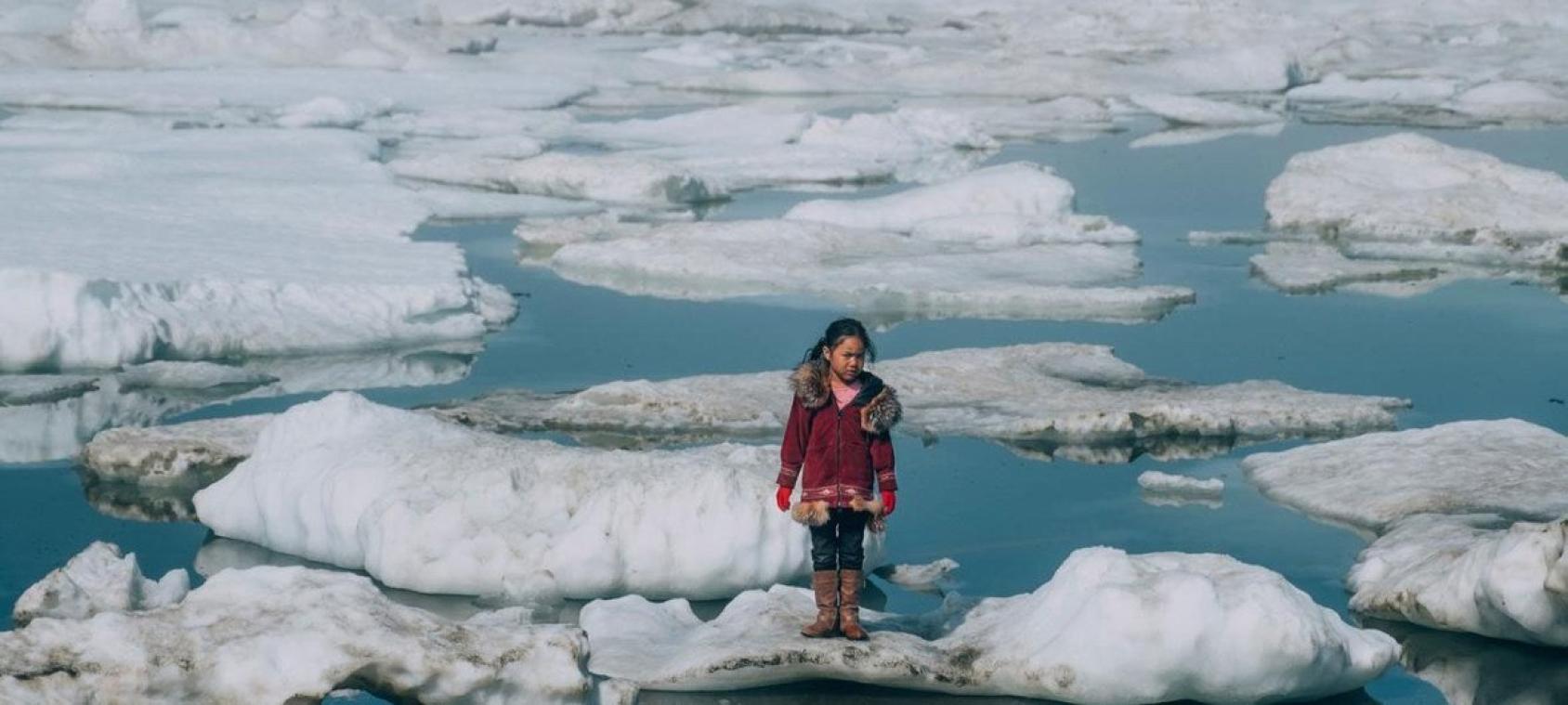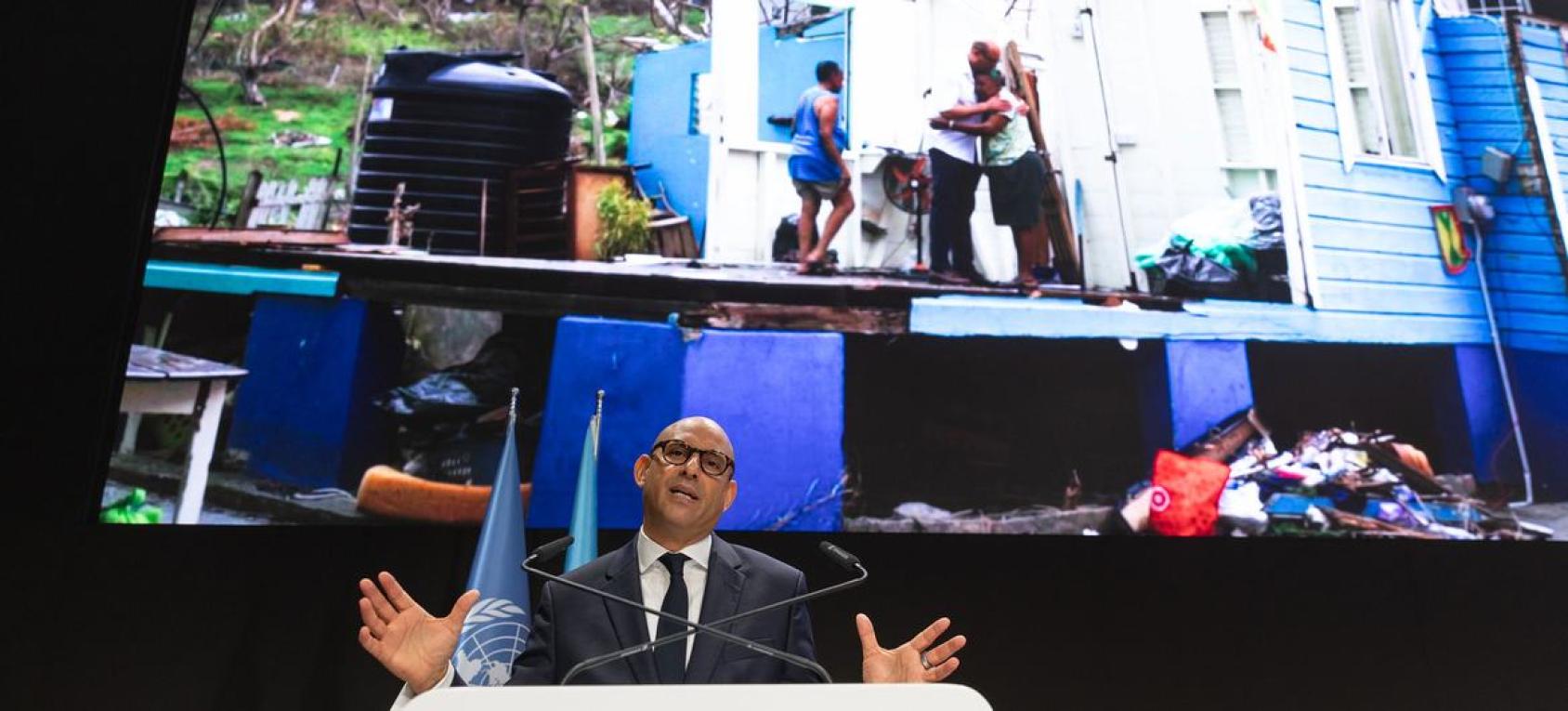Investing in Trust to Unlock Climate Solutions

Around the world, millions of people are coping with the searing impacts of climate change as we hurtle toward the 1.5-degree celsius warming limit. Global greenhouse gas (GHG) emissions set a new record of 57.1 gigatonnes of carbon dioxide equivalent (GtCO2e) in 2023, a 1.3 per cent increase from 2022 levels. 2024 alone has registered record high temperatures, with extreme weather battering communities from Sudan to the Pacific. Acute food and water insecurity, coupled with forcible displacement and migration, is threatening to destabilize societies and derail economies. This onslaught of catastrophic weather events serves as the backdrop for COP29, the UN Climate Change Conference, taking place in Baku, Azerbaijan next week.
The science is clear: we will overshoot planetary limits in our lifetimes unless we take unprecedented action and now.
Nowhere in the world is immune to these effects, and all countries must make efforts to mitigate and adapt to climate change. Data from this year’s Emissions Gap Report shows that countries must collectively commit to cut 42 per cent off annual GHG emissions by 2030.
Yet, despite the science, despite the countries’ firm resolve and commitments, we have run into a familiar roadblock: a lack of trust. The climate catastrophe is not one of increasing temperatures but decreasing trust. Around the world, we have seen how political polarization, fueled by misinformation and disinformation, has made climate action an unnecessary battleground. This erosion of trust manifests in many ways: declining faith in leadership and institutions, growing skepticism among communities towards climate solutions, and a fraying of relationships between nations, particularly on critical issues like climate finance. Yet, this need not be our new normal.

In Baku, world leaders will have the opportunity to put trust back on the table, particularly when it comes to climate finance and the political leadership required to adapt and mitigate the impacts of climate change. COP29 could be a turning point—but only if trust is restored, both within the multilateral system but also across a diverse spectrum of actors. From government to academia, civil society, private companies, banking institutions, media, youth leaders and more, this must be a collective endeavor. As a connector and bridge-builder, the United Nations has a pivotal role to play in confidence building.
This is not trust for trust’s sake: the future of 8 billion people hinges on the world’s ability to deliver on climate commitments.
Firstly, trust for inclusive finance. Parties at COP29 are seeking to agree on a new goal on climate finance, anything from the tune of hundreds of billions to several trillion dollars annually, mobilized from countries’ domestic sources and private financing. This builds on the earlier agreed target of US$ 100 billion yearly until 2020 – a target that must now become the floor – as this amount has faced significant delays in reaching developing countries in dire need. The negotiation of this new climate finance goal is an opportunity to rebuild trust - not just between developed and developing economies but also with companies, the financial sector, insurers and importantly, creditors. The incoming COP29 Presidency recently convened the 2024 High-Level Ministerial Dialogue on the New Collective Quantified Goal on Climate Finance to ensure effective political engagement and open, meaningful and robust discussion and subsequently pre-COP29 to enhance ambition and enable action.
But this trust is difficult to build when a concerning number of countries around the world are facing debt distress with a record 54 developing countries, primarily in Africa, burdened by heavy interest payments. Many of them barely make a dent in contributing to global emissions while carrying the load of climate impacts. Countries drowning in debt do not have the bandwidth to spend on essential climate mitigation and adaptation.
This is an opportunity to shift the way international finance works to allow for equitable access to finance and technology and invite new players and innovative models of financing to take root. The Green Climate Fund approved a US$ 25 million grant in October, to strengthen early warning systems in Azerbaijan. With $10 million co-financing from the Government of Azerbaijan and the UN Environment Programme (UNEP), this funding is expected to enhance the country’s resilience to climate change related hazards and risks.

Secondly, trust for strengthened policymaking. 2024 offers a momentous window for multisector action as the three Rio conventions on climate change, biodiversity loss and desertification take place consecutively. It is imperative that these three interconnected issues, rooted in common causes, are met with unified solutions. Adopting a holistic and systemic approach, we need policymaking that cuts across sectors and moves from regional to national to subnational levels of governance. Nationally Determined Contributions (NDCs), countries’ commitments to the Paris Agreement, are at the heart of this. The development of the next generation of NDCs is currently underway, setting emissions targets for 2030 and beyond and covering sectors such as agriculture, energy, land use, transport, industry, waste and more. It is vital that there are inclusive coalitions that lead just and equitable transitions in each of these areas. Under the strategic leadership of UN Resident Coordinators and the technical expertise of the UN Development Programme, UN teams in many countries are supporting governments to forge linkages and synergies across these plans to maximise gains and minimise trade-offs.
Thirdly, trust in institutions and the capacity of the public sector to help steer transformation on the ground. The ability to design and implement gender-responsive, participatory and scaled up initiatives to accelerate climate action emerging from COP29 will be a test of leadership at all levels. A reinvigorated public sector can be a signal to fatigued and skeptical stakeholders of the urgency to act at significant speed and scale. Standardized and transparent monitoring and reporting for governments and non-State actors can help align ambitions and efforts. The COP29 Presidency has prioritized the climate transparency agenda and has created the Baku Global Climate Transparency Platform for targeted support, capacity building and exchanging experiences and lessons learned on the Biennial Transparency Reports (BTRs) to support the effective implementation of the Enhanced Transparency Framework (ETF) established by the Paris Agreement.
We have a mammoth task ahead of us at COP29 and crucially, afterwards. The promises made at the negotiation table are not just political agreements, but lifelines for billions of people. The UN can be the bridge-builder that helps multilateralism work for everyone, everywhere. Time is running out, and trust is the only way forward – our very lives depend on it.
This article was written by United Nations Resident Coordinator in Azerbaijan Vladanka Andreeva.













